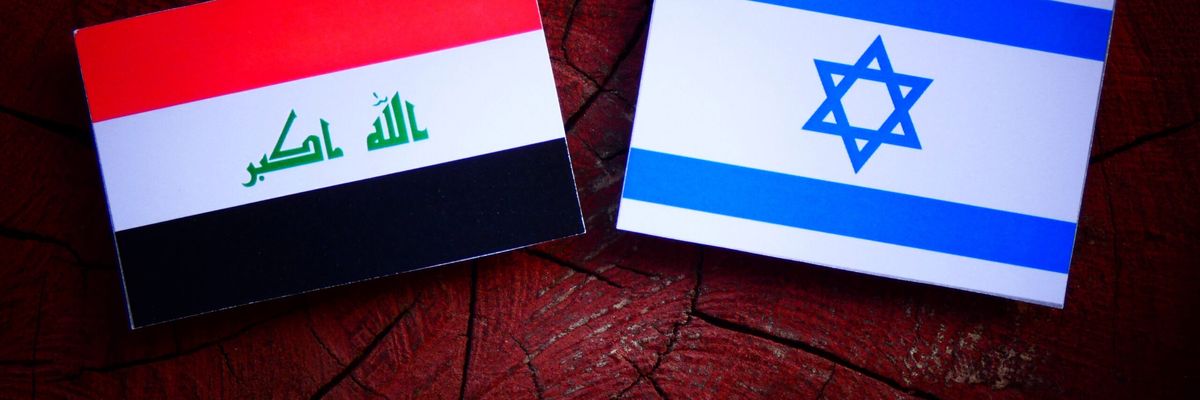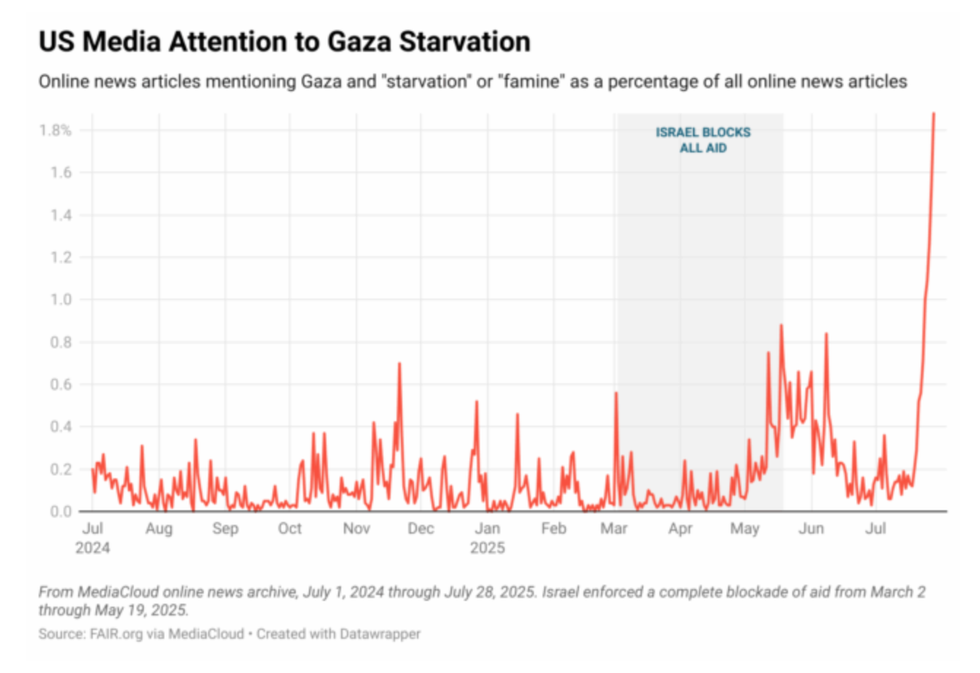A conference of Iraqis calling for diplomatic relations with Israel held last week has devolved into a fiasco as several participants now claim they were duped into attending.
The conference was held in Erbil, Iraqi Kurdistan, on Friday and organized by the Peace Communications Center, a New York-based organization dedicated to fostering Arab-Israeli ties. Several prominent pro-Israel advocates, notably from the influential Washington Institute for Near East Policy and the hardline neoconservative Foundation for Defense of Democracies, have called for the U.S. government to back the conference as attendees face death threats.
Wissam al-Hardan, leader of a Sunni militia called the Awakening, was the most prominent Iraqi speaker at the conference. He read a speech explicitly calling for Iraq to establish diplomatic relations with Israel and join the Abraham Accords, a U.S.-backed alliance between Israel and several Arab states. The Wall Street Journal also published an op-ed in his name making the same arguments.
The Awakening removed Hardan, who had been wounded in the war against ISIS, as its leader for his pro-Israel statements. Iraqi authorities also issued a warrant for his arrest, and Hardan is now hiding in the Kurdish region, according to the New York Times. Iraqi law prescribes the death penalty for anyone “who promotes or acclaims Zionist principles.”
Hardan has since claimed that he did not write the op-ed, and that he was tricked into making a pro-Israel speech. Shortly after the conference, he told Kurdish media that he had “read a statement that was written for me without knowing what was in it,” and that he wanted to support the rights of Iraqi Jewish exiles but not normalization of Israel.
To make matters more complicated, several attendees have claimed that Hardan himself tricked them into attending. Several told Kurdish media that they had been invited to a conference about the possibility of obtaining government salaries for the Awakening.
Another participant, Fellah Hassan al-Neda, claimed that Hardan had invited him to a “conference in the name of peaceful coexistence between religions, including the Jewish religion.”
“We were surprised by the speeches about Israel, peaceful coexistence, the Abraham Accords, what the United Arab Emirates did, and normalization of Israel,” he told journalists.
Peace Communications Center founder Joseph Braude told the Times that he had collaborated with Hardan on writing the speech and the op-ed.
“I believe that he, like other attendees, is facing enormous pressure to recant,” Braude said, promising to help Hardan and the others. “I think that, indeed, the participants knew exactly the kind of risks that they were taking,”
The Wall Street Journal told the New York Times that it had received the op-ed through an intermediary, as Hardan does not speak English, and that it was “told that Mr. al-Hardan had signed off on the edited version.”
The Peace Communications Center did not respond to a request from Responsible Statecraft for documents corroborating its side of the story.
Braude, a writer who was once convicted of smuggling looted artifacts out of Iraq, would not tell the New York Times specifically who funds his organization, although he stated that several Americans and a European are donors.
The Peace Communications Center has significant overlap in its staff and board of directors with the Washington Institute for Near East Policy, a think tank with close ties to the American Israel Public Affairs Committee.
Washington Institute executive director Robert Satloff has heavily promoted the Erbil conference on social media, calling for the U.S. government to back it publicly.
The Washington Institute did not respond to a question from Responsible Statecraft over whether it had any role in planning or prior knowledge of the conference.
Former Secretary of State Mike Pompeo and the Anti-Defamation League have also called for the Biden administration to publicly support the conference. The U.S. government has not commented on the conference, and the U.S.-led counterterrorism coalition has issued a statement clarifying that it has no affiliation with the Peace Communications Center. FDD CEO Mark Dubowitz promoted an article shaming those who recanted their participation.
Thanassis Cambanis, director of the international policy program at The Century Foundation, noted that “there appeared to be a coordinated campaign by a like-minded group of Americans and U.S.-based groups to promote the conference—misleadingly—as representing some groundswell of Iraqi public opinion.”
Meanwhile, the repercussions for Iraqi participants have continued. Militias are now flying banners with photos of Hardan and other participants, along with bloody handprints and statements declaring them traitors.
Iraq is heavily penetrated by Iranian intelligence operatives and pro-Iranian militias, who are avowed enemies of Israel and known to murder their opponents with impunity. One pro-Iranian militia has levied threats to attack the conference participants with missiles and drones, according to the New York Times.
But beyond Iranian influence, Israel is deeply unpopular with the Iraqi public. There have been several Iraqi-Israeli military clashes over the past decades, as well as a long and bloody history of antisemitism in Iraq. Polls show that 90 percent of Iraqis oppose diplomatic recognition of Israel.
“These personalities, with Sheikh Wissam al-Hardan at the head, do not represent us,” a collection of Arab clans said in a statement to RT. “Nor do they represent the Sunnis or the authentic Arab clans.”
















